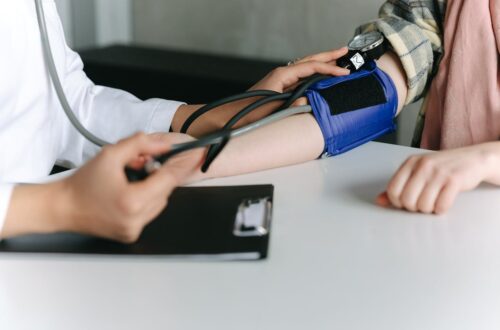
Natural Ways to Lower Cholesterol: A Comprehensive Guide
Cholesterol, often perceived as a villain in the realm of health, is actually a vital substance in the body. It’s crucial for building cell membranes, producing hormones, and aiding in the synthesis of vitamin D. However, when cholesterol levels become too high, particularly low-density lipoprotein (LDL) cholesterol, it can lead to serious health issues like heart disease and stroke. The good news is that you can manage and lower cholesterol naturally through lifestyle changes and dietary adjustments. This blog post explores effective, natural ways to lower cholesterol, promoting overall health and well-being.
Understanding Cholesterol: The Basics
Before diving into the natural methods to lower cholesterol, it’s important to understand the two main types of cholesterol:
- Low-Density Lipoprotein (LDL) Cholesterol: Often referred to as “bad” cholesterol, high levels of LDL can lead to plaque buildup in the arteries, increasing the risk of cardiovascular diseases.
- High-Density Lipoprotein (HDL) Cholesterol: Known as “good” cholesterol, HDL helps remove LDL from the arteries, transporting it to the liver where it can be processed and eliminated from the body.
The goal is to maintain a healthy balance by lowering LDL and increasing HDL levels.
Natural Ways to Lower Cholesterol
1. Adopt a Heart-Healthy Diet
A well-balanced diet is the cornerstone of managing cholesterol levels. Here are key dietary changes to consider:
a. Increase Soluble Fiber Intake
Soluble fiber binds with cholesterol in the digestive system, helping to remove it from the body. Foods rich in soluble fiber include:
- Oats and oat bran
- Barley and other whole grains
- Beans and lentils
- Fruits like apples, oranges, and berries
- Vegetables like carrots and Brussels sprouts
b. Opt for Healthy Fats
Replace saturated and trans fats with healthier fats such as:
- Monounsaturated fats found in olive oil, avocados, and nuts
- Polyunsaturated fats found in fatty fish like salmon, mackerel, and trout, as well as flaxseeds and walnuts
c. Incorporate Plant Sterols and Stanols
These naturally occurring substances in plants help block cholesterol absorption in the intestines. They are found in:
- Fortified foods like certain margarine spreads and orange juice
- Nuts, seeds, and legumes
d. Limit Dietary Cholesterol
Reduce intake of high-cholesterol foods such as:
- Red meat
- Full-fat dairy products
- Egg yolks
- Processed meats
e. Eat Plenty of Fruits and Vegetables
Rich in nutrients and antioxidants, fruits and vegetables help improve cholesterol levels. Aim for a colorful variety to maximize benefits.
2. Maintain a Healthy Weight
Excess weight can negatively impact cholesterol levels. Losing even a small amount of weight can improve cholesterol levels. Here are some tips for achieving and maintaining a healthy weight:
- Set Realistic Goals: Aim for gradual weight loss through sustainable lifestyle changes rather than extreme diets.
- Monitor Portion Sizes: Be mindful of portion sizes to avoid overeating.
- Stay Active: Incorporate physical activity into your daily routine.
3. Exercise Regularly
Regular physical activity can help raise HDL cholesterol while lowering LDL cholesterol and triglycerides. Aim for at least 150 minutes of moderate aerobic exercise or 75 minutes of vigorous exercise per week. Some effective exercises include:
- Brisk walking or jogging
- Cycling
- Swimming
- Yoga
- Strength training
4. Quit Smoking
Smoking lowers HDL cholesterol and damages blood vessels, increasing the risk of heart disease. Quitting smoking can improve HDL levels and enhance overall heart health. Benefits of quitting smoking include:
- Reduced blood pressure
- Improved lung function
- Decreased risk of heart disease
5. Limit Alcohol Consumption
Moderate alcohol consumption has been linked to higher HDL cholesterol levels, but excessive drinking can lead to serious health problems. Limit alcohol intake to:
- One drink per day for women
- Two drinks per day for men
- If possible even less than that
6. Manage Stress
Chronic stress can negatively impact cholesterol levels and heart health. Effective stress management techniques include:
- Mindfulness and Meditation: Practices like yoga and deep breathing can reduce stress.
- Regular Physical Activity: Exercise helps manage stress and improve mood.
- Adequate Sleep: Ensure you get 7-9 hours of quality sleep per night.
- Hobbies and Leisure Activities: Engage in activities that you enjoy and that help you relax.
7. Consider Natural Supplements
Certain supplements have been shown to help lower cholesterol levels. Before starting any supplement regimen, consult with a healthcare provider. Some effective natural supplements include:
- Omega-3 Fatty Acids: Found in fish oil supplements, omega-3s help reduce triglycerides and may improve HDL cholesterol.
- Plant Sterols and Stanols: Available in supplement form, these can help reduce LDL cholesterol.
- Psyllium: A type of soluble fiber, psyllium supplements can help lower cholesterol.
- Red Yeast Rice: Contains naturally occurring statins that may help lower cholesterol, but should be used with caution and under medical supervision.
Key Points Conclusion
Lowering cholesterol naturally involves a holistic approach, combining dietary changes, regular exercise, and healthy lifestyle choices. Here are the key takeaways:
- Diet: Focus on increasing soluble fiber, healthy fats, and plant sterols while limiting saturated fats and dietary cholesterol.
- Weight Management: Achieving and maintaining a healthy weight can significantly improve cholesterol levels.
- Exercise: Regular physical activity helps raise HDL and lower LDL cholesterol.
- Lifestyle Changes: Quit smoking, limit alcohol intake, and manage stress effectively.
- Supplements: Consider natural supplements like omega-3s and plant sterols, but consult with a healthcare provider first.
Disclaimer
The information provided in this blog post is for educational purposes only and is not intended as a substitute for professional medical advice, diagnosis, or treatment. Always seek the advice of your physician or other qualified healthcare provider with any questions you may have regarding a medical condition.
Sources
- Mayo Clinic. (2021). “Cholesterol: Top Foods to Improve Your Numbers.” Retrieved from Mayo Clinic.
- American Heart Association. (2020). “Dietary Recommendations for Healthy Children.” Retrieved from American Heart Association.
- National Heart, Lung, and Blood Institute. (2021). “Lowering Cholesterol with a Heart-Healthy Diet.” Retrieved from NHLBI.
- Harvard Health Publishing. (2019). “Simple Ways to Lower Your Cholesterol.” Retrieved from Harvard Health.
- WebMD. (2021). “How to Lower Cholesterol Naturally.” Retrieved from WebMD.
By following these natural methods, you can take proactive steps towards managing your cholesterol levels and improving your overall health. Remember, consistency is key, and small, sustainable changes can lead to significant health benefits over time.
Found this post helpful? Give it a thumbs up and spread the love!”




